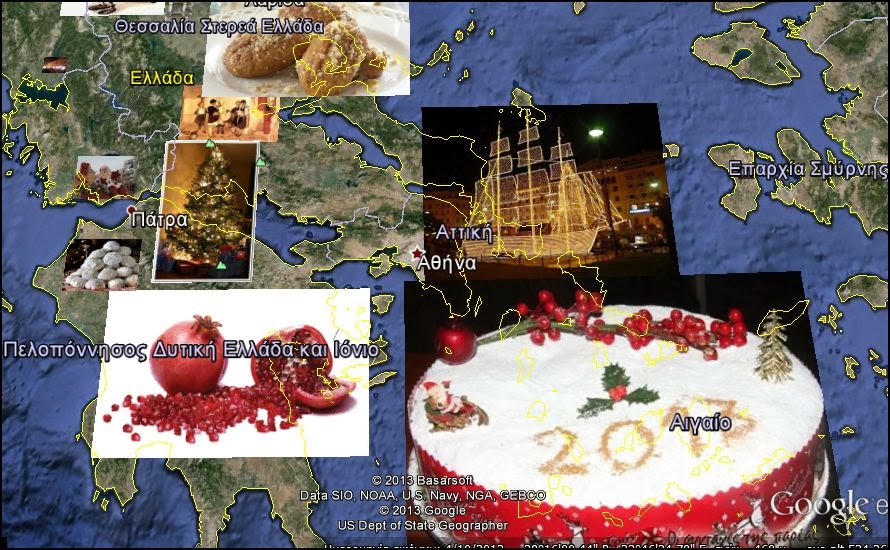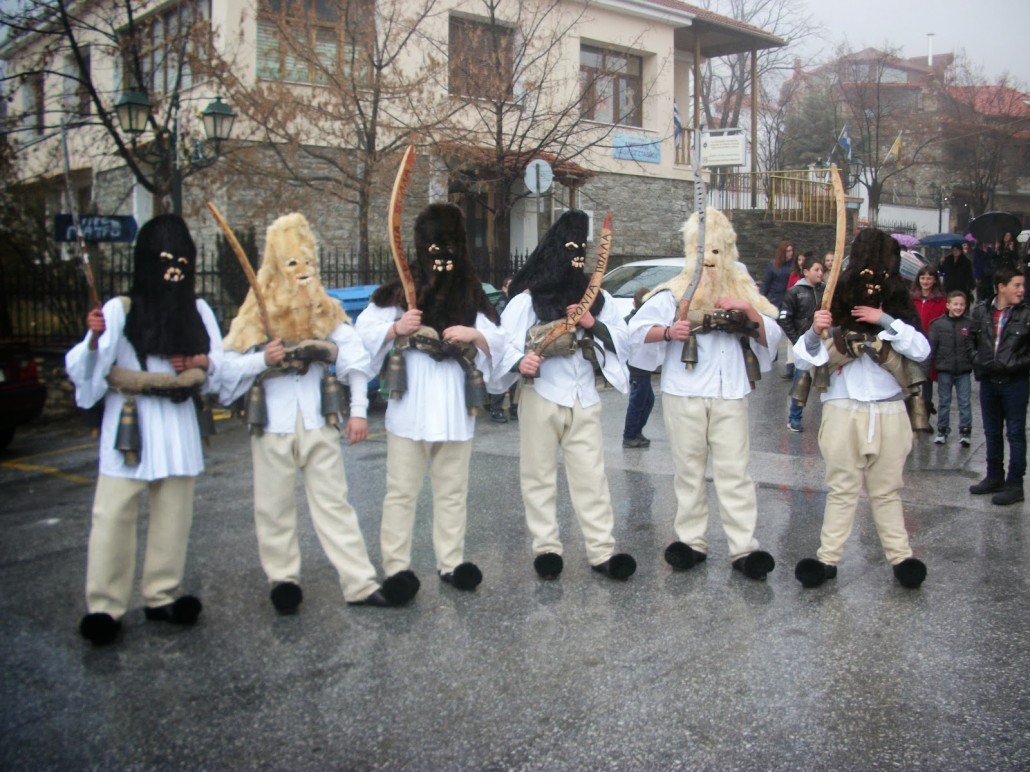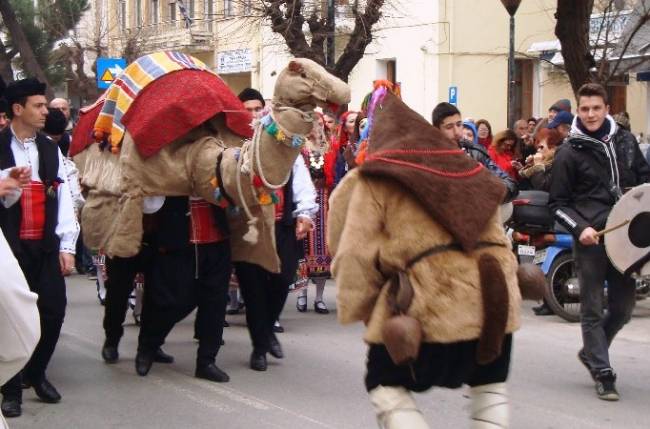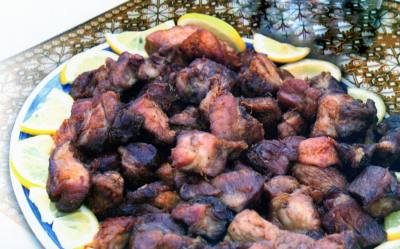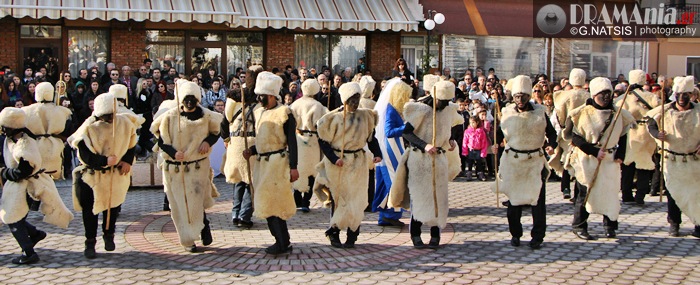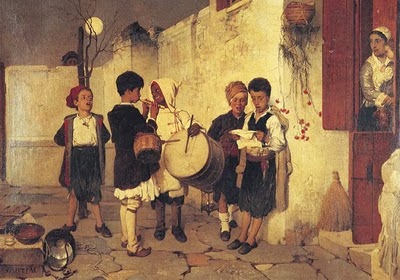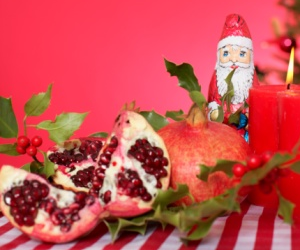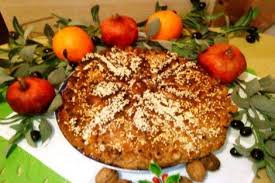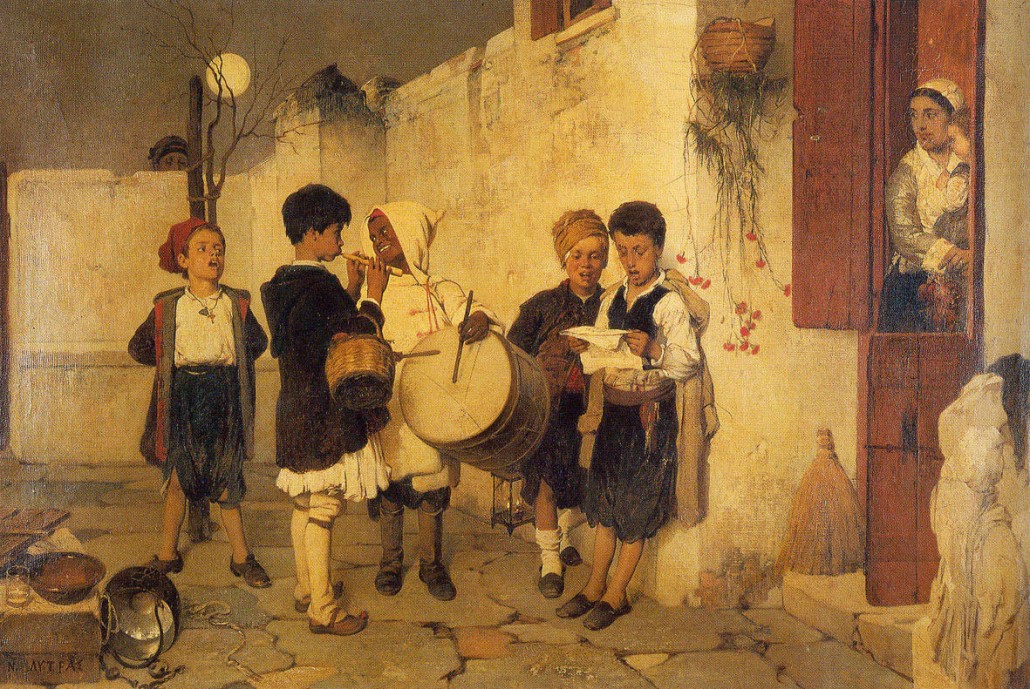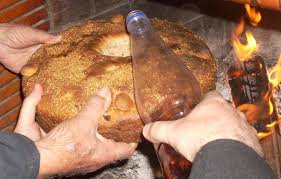Christmas Traditions in Greece: Festivity Melodies, children fiction, fragrances from household kitchens, bonfires, bells, gambling boats Santa Clause and Christmas trees, costumes and goblins, these days give their own unique color to all areas, but even in the small pockets of Greek territory. All prepared for the birth of Christ, the revenion have a field day with their families and friends growing up and the streets and squares illuminated kosmo.Kathe flooded area these days has its own unique customs. In Epirus beyond the mainstream there are a few traditions that have begun to deteriorate over the years. Let’s look at some of them:
The nuts
Walnuts are a traditional team game played by children. The rules of the game are as follows: One child chases the soil a straight line.
On this, and every player puts a nut in a row. Then, each player in turn and vertical distance one to two meters from the line of nuts, scars stooping, and the largest and most round the nut, another nut.
Any nut succeed and take out the line wins and tries again marking another nut. If failed, the next player continues. The game continues until you get out of the line all the nuts.
The lighted holly
When Christ was born and went, the shepherds worship was dark night. They found one somewhere dry and cut the holly branches. It took everyone a twig in his hand, he put fire and filled the dark mountain fires and happy squeaks and clicks. Since, therefore, in the villages of Arta, who go to a neighbor’s house to tell for many years, and all the children married, who will go to their father, to kiss the hand of the father and the mother to keep a holly branch, or anything else that burns trees creaking. On the way the lights and lit so go to their father’s house and filled cheerful fire and clicks the dark streets of the village.
Even in Ioannina do the same. Only there do not keep the entire branch holly lit in their hand – is the great state Ioannina – but keep in hand a handful of bay leaves and pournarofylla, that fly in the fireplace, just enter and good morning. And when the dry leaves catch fire and start to rattle and throw sparks, pray: “Lambs, kids, brides and grooms!” This is the best wish for every homemaker. To prosper flocks to multiply the Famelis his growing girls and lads, to bring home the brides and grooms to give him grandchildren who do not will leave his name maiden off.
In other region of Greece revived the following traditions:
Thessaly Feeding tap
The girls, the dawn of Christmas, it‘s Eve, go to the nearest tap “to steal akranto water” (akranto ie silent, why not earn word in all the way). Smear taps village with butter and honey, with the wish as running water running and prosperity at home and the new year be sweet and their lives. To have a good harvest, when they get there, the “feed” with various delicacies, such as butter, bread, cheese, legumes and olive branch. What would go first to the fountain, she was the luckiest entire year. Then throw in a pitcher vatofyllo three pebbles, “stealing water” and turn their homes again silently until you drink all the water akranto. With the same water and sprinkle the four corners of the house, and scatter in the home and the three gravel.
The combination of fire
On Christmas Eve in many parts of Greece “marry” the fire. They take a stick with a female name and a male name, usually spiny trees. The spiky trees, according to popular perception, remove the demonic creatures, such as goblins. In Thessaly, returning from church at home, the girls put next to it in the fireplace cedar boughs the sorting, while the boys put branches from Wild Cherry. These small tree branches represent their personal wishes for the realization of a beautiful life. They care even the branches they are supple and watching with interest what branch will burn first, they say that this is a good sign for the girl or boy, respectively, namely that it is what you will get married first.
Come on, in gourounochara
Preparing for the slaughtering of the pig was in excellent care while ensue partying till dawn, to repeat the same process the next day and the one after that. Three or four related families determined to turn what day will the butchered hog. For each pig slaughtering large men required 5-6, except for children, who were aged 20 to 25 years many times. Since all the work entailed feasting and joy, which is why this day is established as “gourounochara or grounouchara“.
The New Year Bampaliouria
The New Year festivities traditionally start on the eve of Larissa, where children roam the streets singing carols and Santa Clause shouting “Sourvaso”. On New Year’s Day revived “Bampaliouria” is a New Year’s Eve custom, which has its roots in the Dionysian cult.
The uniform of Bampaliouridon consists of the “breeches”, a white woolen trousers, which fasten at the waist by a woolen white belt. The shirt worn on top is usually white with wide sleeves as that of Tsoliades. At the foot wear white garters and tsarouhia. In the middle wearing a coarse woolen cloth, folded several times, which tie up large and heavy bells. The head wear special masks, fleece animal, the so-called “foulina”. This mask is white or black and has three openings, two eyes and a mouth. In the hands holding a wooden curved sword complements the costume of any “Bampaliouri”.
Ready longer “Bampaliouria” waiting to finish the liturgy to stream into the streets. With them is always “adelfogyrtis” who holds a piggy bank and collects the money offered by the world. Even before the end of the New Year’s Mass “Bampaliourides” have taken place outside the three parishes of the village.
Leaving the world of the church meets them unawares after passing the sword in the middle and will not let anyone get away if you do not put money onto it. Just put the money gets the adelfogyrtis and wishes them a Happy New Year. After the churches “Bampaliouria” go to the square, and the loud noise caused by bells, draw the attention of local and foreign visitors. Leaving there, pass by the cafes and bars of the village and then getting out on the streets late at night. This custom is meant to banish evil spirits, and be quiet and happy the new year.
MAKEDONIA The Christoxylo
In the villages of northern Greece, from the eve of the holidays homemaker looking fields and selects the most beautiful, the most solid, the most coarse pine or olive and go home. This is called Christoxylo and the wood will burn throughout the twelve days of holidays, from Christmas until Epiphany, the fireplace in the house. The ashes of the wood of these protects the home and fields from all evil.
Before the landlord bears the Christoxylo every housewife arrange to have the house clean and carefully fireplace, so as not to leave any trace of the old ashes. They clean even the chimney, in order not to go down presses find goblins, evil demons, as they say in the traditional Christmas tales. The night before Christmas, when the whole family is gathered around the fireplace, the husband lights the fire by putting in the corner Christoxylo. According to the traditions of the people, and burned Christoxylo, warmed Christ in His manger. In each household, the householders are trying to burn the Christoxylo until Epiphany.
The custom of Camel
Every year on New Year’s Eve members of the cultural association ‘Kavakli’ of getting Koufalion Thessaloniki city streets. But do not say carols, but dressed in camels and shout out loud several slogans. Their purpose is to deceive the soldiers of Herod who are looking to find the baby Jesus, as to not be able to kill him.
Traditional fried pork
With traditional Pans and visit Cappadocia Santa Claus celebrated Christmas in the city of Kavalas.To shopping center on Christmas Eve reminds a big barbecue. Most walkways, and pavements, the merchants in the outdoor barbecues, called Pans and offer all passersby grilled meats and local red wine.
Traditional Pans erected again on New Years Eve, this time to a greater extent, and from noon in the great celebration with plenty of wine and orchestras outdoor grills for the reception of the new year well before midnight.
On the eve of another Christmas tradition is revived in the city and particularly in the New Karvali. This is the visit of Santa Claus Cappadocian who completed the long journey from Caesarea reaching the folk village “Akontisma”, where it will remain until the last day of the year.
The Momogeri
In the villages of Platanias and Sitagri Drama meet the custom Momogeria, which comes from the Pontian refugees. The name of the custom comes from the words mime or blemish are old and connected to imitating the moves of the protagonists. Here, wearing animal skins – wolves, goats or other – or people dressed in uniforms armed with swords, in the form of senile persons.
The Momogeri appear throughout the course of the twelve days of holidays and hoping luck for the new year, turned to friends in the streets of villages and sing carols or other efchetikous lyrics. When two groups meet, make pseftopolemo each other until one team to win and the other to swear allegiance. Variations of the same custom, found in villages of Kozani and Kastoria, called Ragoutsaria.
The kladaries
The kladaries area Voio included in the customs of the Twelve, called for the period from Christmas onwards. Preparing for the custom though, starts as early as October. Specifically, the next St. Demetrius on 27 October, children and teens running in the fields and hillsides and gather twigs and dry grass for kladaria. Looking mainly cedar branches that have a particular fragrance. The branches are stored in a dry place and remain there to dry completely and have no moisture.
On December 23, the preparation begins as early as noon. The branches stacked in the open space where they celebrated the tradition and create a huge pile. The pile is lit at night, from the hands of the older residents of the village. Then, residents catch dance around the fire. In some places roam around the fire and kodonoforoi men hanging bells and give the entire ceremony a character ancient Dionysian happening.
The scent of cedar and the whole atmosphere create a really special atmosphere. In some parts of Voio the kladaria lights halloween namely Sunday of Tyrinis
In Florina, residents welcome the birth of Christ by lighting large fires at 12 midnight, symbolizing the fire that lit the shepherds of Bethlehem to warm the newborn Christ. Bonfires are lit and also the evening of New Year.
Colin Babs
In Pella revives the custom of “Colin Babs‘ related to the slaughter of Herod. Local residents lit bonfires at night shouting ‘Colin Babs‘ ie’ slaughter grandmother. “According to custom the fires lit to learn people to slaughter and to avoid exposure.
The leaf spordisma
Thassos, to date, the families keep a very old custom is spordisma leaf and is as follows: we all sit around the fireplace, pull the carbon to the outside and throwing around f coals, olive leaves, putting in mind from a wish, but to tell others. Which turned the sheet over, and that will be the blessing.
GREECE
The breaking of pomegranate
The morning of the New Year, the family goes to church and the landlord keeps in his pocket a pomegranate, to operate. Returning home, we hit the doorbell -no makes himself open with the key of at so be the first to enter the house to make a good omen, a pomegranate in his hand.
Entering with the right breaks pomegranate behind the door, throws it down with that force to break and be thrown berries everywhere and also says: “with health, happiness and joy in the new year and as many berries has pomegranate, many pounds have the pocket throughout the year. “Children gathered around the nipples if you look crisp and bright red. The strong and beautiful berries are both joyful and blessed is the day that brings with it the new year.
Hunting Christmas villages Mani
During Lent many children come out hunting. In the evenings, when the dusk fell on good and cold began to tingle, I get the “lens” with a new “plate” and turn the ruins and cave near the village. Objective their gourgougiannides, small birds that roost there. The dazzle with lens and piano. If it was too high, struck with lastichieres (slingshots). Mother or a big sister, after much nagging, their cleaned and bloat. The BAZAN in earthenware or glass jars to eat Christmas.
Many children gathered more than twenty birds and admired for their hunting skills … and for their crops. And when scales celebrations, beginning traditional preparations. The house had to put the festive and the whole village to be cleaned and prepared to receive the emigrants who would come to do festivals with their own.
Crete:
Christmas cake
The kneading Christopsomo project considered divine and pure Christian custom. Women make the dough with special reverence and patience. Kneading is a ritual. They use expensive materials such as fine sieve flour, rosewater, honey, sesame seeds, cinnamon and cloves, and during zimomatos say: “Christ is born, the light rises, the yeast to general.” Molding the dough and take half the dough and make a loop. With the rest make cross with strips from the dough. In the center put a nut or an unbroken egg, symbolizing fertility.
For the Christmas table, Christopsomo blessed bread, as this will support the life of the landlord and his family. The cut on Christmas Day, with many blessings.
Thrace the Rougkatsia
In Pythian toddlers came out on the streets to tell the “Kolianta” one day earlier than Christmas Eve, ie on 23 December. The boys, from early in the morning, pour in the streets of the village and chanted: “Colin, Dad Chick, Chick, Chick ….” On the day of Christmas the lads of the village were divided into small groups and went around all the houses. On each group consisted of four people. On the way they called songs of the street and into the house: “Forty-Mary Carter that we have Christ …“
The Rougkatsia, ie groups of young men, when they entered the house sat where they put the housekeepers, and sang alternately two at the above song. This is to “refresh” their voice. Why the song was too big, with no intervening “Relaxation”, and struggled to make ends meet. It had to sing in many homes until late on Christmas day. When ‘rchontan Rougkatsia the home had all family members to be there. House closed Rougkatsia not supposed to find. To’chane into evil. They sat, sang, took the cherry Tipping the (money) and go to another house.

